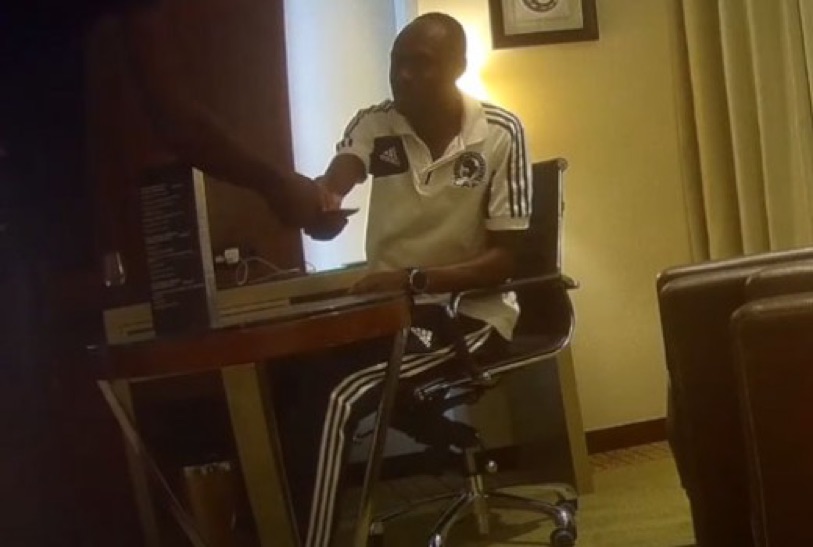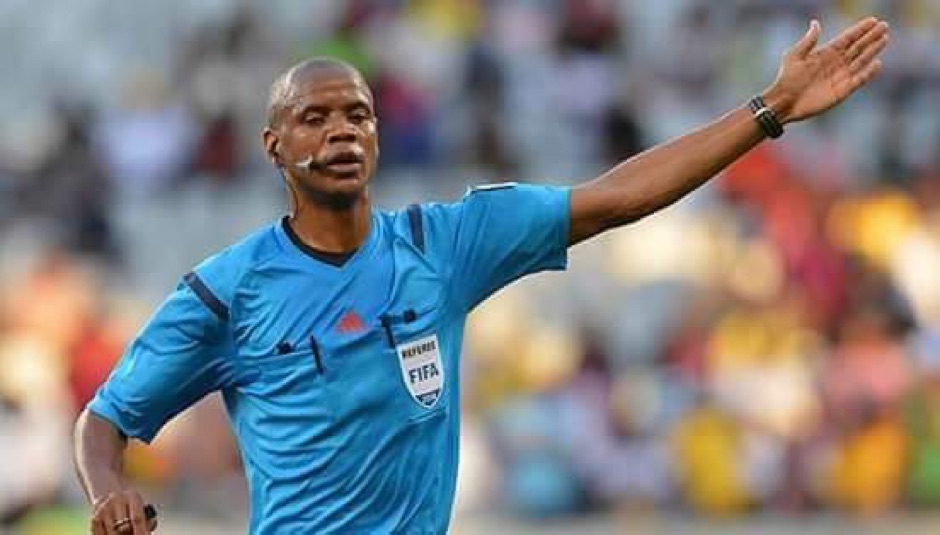The Confederation of African Football (CAF) recently banned eleven referees who were caught on video by undercover Ghanaian investigative journalist, Anas Areneyaw Anas for terms ranging from two years to life and provisionally suspended another eleven over allegations that they accepted money to influence results of matches.
The “harsh” sentences shocked the footballing world as the undercover investigative two-hour film was closely followed by majority of football fans across the world. But what every football lover should remember is that the bribery incidents were not the first as various referees from the continent have been caught previously in different settings accepting cash gifts – a thing which shows the depth to which corruption has eaten up African football.
The most bizarre case of recent times involved a Malawian referee Aziz Nyrienda, his two assistants and a fourth official who all stooped too low to accept a bribe of $20 to influence a national cup match between Nchalo United and Chitipa United in their home country.
The four were banned for life on the back of investigation by the Malawian Referee Association despite one of the arbiters Limbani Chisambi denying wrongdoing.
But does banning the referees tackle entrenched corruption in the game?
Being a referee is termed the most difficult of jobs in football. An arbiter’s every decision is analysed and scrutinised by managers, players and fans. A tricky affair it is, but you’d be shocked to find out how much CAF pays referees.
A conversation with a CAF insider disclosed to us that referees are given $1,200 per match compared to their counterparts in Europe who get $ 6,000 per game. From those figures, it puts a point that poverty invites corruption. In Europe and Americas, corruption cases in football involving money exchanges is seldom heard of. The same cannot be said of in our part of the globe.
Simply put, it’s difficult not to argue that the low wages CAF referees receive contributes to the low standard of sport. In fact the paltry sums increases suspicion as the few qualified referees officiating in leagues and international matches are perceived to partially forget, under the influence of few coins, that they are expected to be the epitome of incorruptible figures in the game.
One may argue that the suspensions carried out in recent times by CAF will help rid the game of this vice. It however does not seem to occur to many that trend of getting referees to interfere with results using money has changed. Archaic and gone is the old trend of money-dashing. Perhaps in an attempt to climb a sophisticated height, gifting of land, houses, luxury watches and sponsoring expensive travels abroad is now the latest norm and preferred form of bribery.
Though such ways of influencing football results have not yet been reported in African football, the actions taken by the football governing body may modernise the way match fixing is done.
It cannot be predicted when it will happen but it should be remembered that CAF started paying referees directly not long ago, in what can be named as beginning of a fight on the ethical challenge that has engulfed the beautiful game over decades.
This direct payments are done only for the international matches and not for the referees in domestic leagues in the continent, which mostly is effected by individual clubs, something which could still open up avenues for corruption.
Referencing again to Anas’ video, it was just few months after CAF Executive Committee passed the resolution when Ivorian referee Denis Dembele was captured accepting $700 ahead of the Round of 32 clash between Ghana’s Aduana Stars and Algeria’s Entente Setif in this season’s Champions League.
At another point, the Anas team handed over money in the referees’ changing room just an hour before kick-off of a match in this year’s regional West African Football Union (WAFU) Cup between Ghana and Mali. Those two cases clearly show that referees are not closely monitored by CAF and hence the body needs to implement intense security measures if this conundrum in the sport is to be curtailed.
What CAF officials in Cairo should know is that suspension of referees or a life ban is not enough as it will not serve a purpose in putting the vice out of the game. Looking back to real life, thoughtful societies place great emphasis on proper regulation; and impose severe penalties on those who perform their roles badly. So, more harsh penalties like imprisonment need to be put into place or football risks singing its nunc dimittis.
If the game stays rigged, match after match, the players will stop trying, including the favored ones. It is not too late for CAF to restore some credibility to its referees and restore the hope of followers of the beautiful game. The only cure to curb the vice is for its executive committee to convene a meeting, revise the penalties and ask the federations where these referees originate from then to take serious measures such as taking the corrupt referees to the courts.







